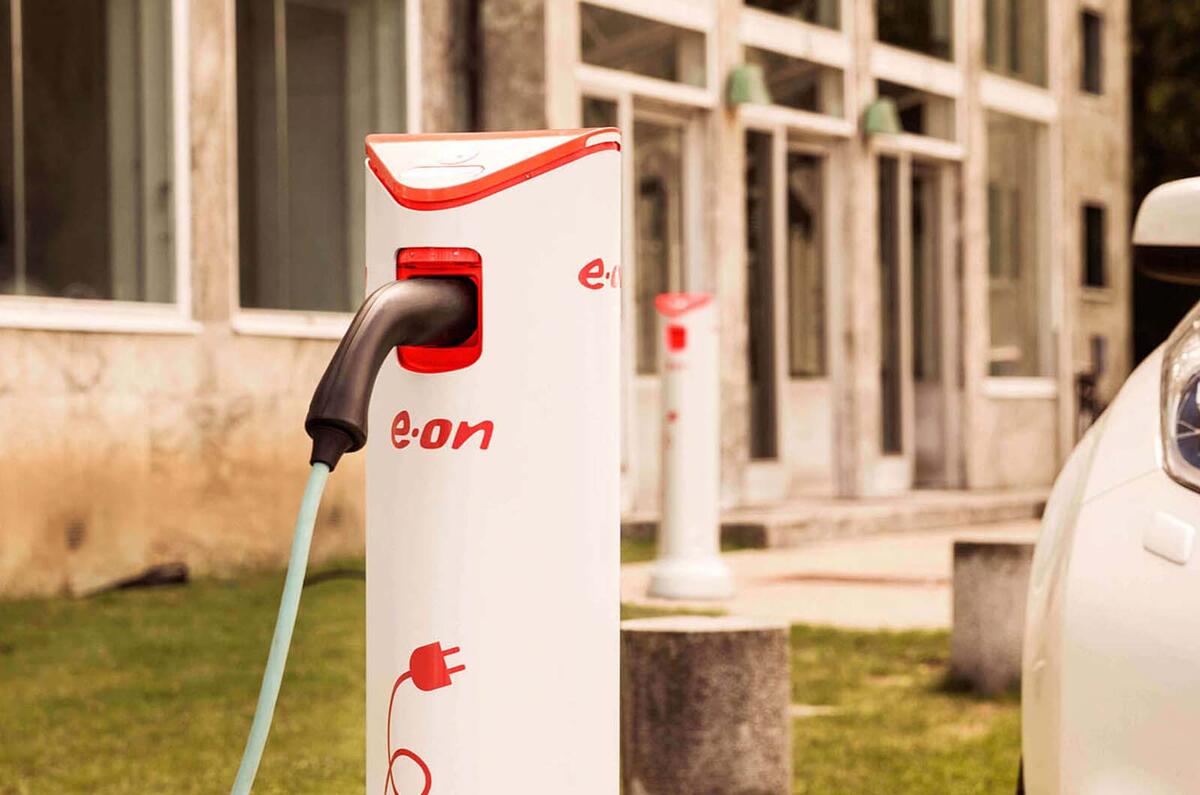Energy firm Eon has announced its plan to expand its electric car charging network to 10,000 points across Europe by 2020, dramatically more than the 400 ultra-fast chargers announced last week by a consortium of BMW, Daimler, VW Group and Ford.
Eon’s charging-point roll-out includes the UK, but the firm could not confirm how many would be installed here.
However, it said the number of charging points could go beyond 10,000 by 2020, depending on which partnerships it forms. It already has partnerships in Denmark with e-mobility company Clever to roll out ultra-fast chargers to key motorways in Europe. In Germany, Eon is working with service station brand Tank and Rast to deliver an ultra-fast charging network, allowing EV drivers to travel the 600 miles from Flensburg in the north to Munich in the south.
2018 Nissan Leaf prototype review
The quickest of the charging points from Eon will be ultra-fast, which is equivalent to Tesla Supercharger levels. These will offer 150kW, with a modular upgrade option to 350kW, to accommodate the more powerful batteries that are gradually being introduced on EVs. The ultra-fast stations enable charging of a 250-mile range battery in 20-30 minutes, claims the company.
Eon, which currently has 6000 charging points in Europe, is one of many companies announcing growth plans for electric vehicle infrastructure, with many in the automotive industry predicting an approaching “tipping point” for electric vehicles: the time when they will finally become mainstream.
Only last month, oil company Shell announced a fast-charging service for electric vehicles at three of its service stations in the UK, and said it would expand its service further in the UK, the Netherlands and the Philippines.
Meanwhile, last week, a consortium of German car giants and Ford announced Ionity, an EV fast-charging network of 400 points by 2020, with Germany, Austria and Norway the primary focus.
Morgan Stanley estimates that one million to three million public charging points could be needed in western Europe by 2030 to meet increasing demand. Current estimates show 120,000 charging points across Europe.
To promote its new service, Eon has released a video of the world’s only fully electric monster truck, a 200mph EV superbike and the Raesr Tachyon Speed electric 240mph supercar racing across the desert. It was the first run for the Tachyon Speed, which has more than 1250bhp, 3650lb ft of torque and claimed performance figures of 0-120mph in under 7sec.




Join the debate
Add your comment
apps
nice post
85% charge from home when asleep
Anyway the follwoing might shed light on the fact charging stations aren't as important as some people think they are (and that's with EV's current range):
"The Idaho National Laboratory last month published a report based on the biggest study into electric vehicles and charging infrastructure in the world. Among its findings was that private EV owners charged their cars at home more than 85 per cent of the time, mostly overnight while they’re sleeping. The workplace was the second most common place to recharge, suggesting the majority of electric infrastructure required is personal rather than public."
xxxx wrote:
At the moment, but as EV battery capacity rises the ability of a domestic supply is going to become more limiting and very expensive to upgrade. These chargers will be able to put enough in a short time to last many people days without needing to plug in. Also if commercial vehicle like EV vans and taxis become more widespread it will extend their working time considerably whilst losing the minimum unproductive time.
People's mileage won't change so nor will their overnight charge
99.9% time 99% of people won't do more than 200 miles in a day, therefore their battery won't be 'flat' to start off with so it'll still only need to put say, 20kwh 'in' on average per night. Just because you can have a 150kwh battery doesn't mean people will need or buy it
Therefore the one-off domestic supply changer, for the most part, won't become very expensive to upgrade. In fact prices should come down owing to econmics of scale.
taxis very rarely travel more than 150 miles a day anyway, for the jobs outside city limits petrol will do for the next 20 years
Not that I care, but is it